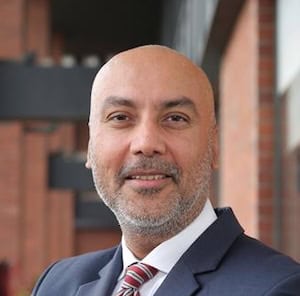-
Weekly Roundup: The (Possible) Impact of President Trump or Sanders on Emerging Economies
We avoid politics on NextBillion, but in ways that truly matter to our readers, this U.S. presidential campaign has invaded our territory. Many observers in recent weeks are taking a hard look at what a Donald Trump or Bernie Sanders presidency would mean for emerging economies. In this post, we examine some of the possible repercussions of two key policies advocated by the candidates.
- Categories
- Uncategorized
-
The Most Powerful Weapon for Changing the World: How Microfinance Institutions Can Increase Access to Education
Nelson Mandela described education as the “most powerful weapon which you can use to change the world.” But how can we increase access to quality education for children and adults? The author maintains that governments and the philanthropic sector can play a role, but there's also a practical need for private financial resources to support education access.
- Categories
- Education
-
Sir Fazle Hasan Abed of BRAC: Poverty’s About Deprivation, and It’s Fixable (Video)
“Oppressed people have got their own way of thinking about life,” said Sir Fazle Hasan Abed, founder of BRAC, “and if you can somehow mobilize them, make them critically aware of their own condition, and get them to act on their own behalf, make them an actor in their own history, then things become much easier.” Watch our in-depth interview.
- Categories
- Social Enterprise
-
Making it Rain: The forecast on weather index insurance
A host of risks, including too much or too little rain, keeps farmers from adopting inputs and practices that may yield more profitable crops. But weather index insurance could be the hedge many farmers need. The Agricultural Technology Adoption Initiative reviewed several randomized control trials about how to make insurance a more attractive option for farmers.
- Categories
- Agriculture
-
Why China’s Fintech Surge is Only Just Beginning
In China, MetLife Foundation's newest approach to improving the financial health of everyday consumers is through harnessing the power of social entrepreneurs. Next month the foundation will invite social enterprises (nonprofit and for-profit alike) across China that are focused on increasing access and use of financial services among low- to moderate-income people to enter their products to participate in a new competition. Why China is booming for fintech and what's next.
- Categories
- Uncategorized
- Tags
- fintech
-
Financial Products are Available – Why Aren’t the Poor Using Them?: IPA is seeking research partners to help answer that question
Take-up of mobile financial products remains low, and usage rates are often disappointing. That's why Innovations for Poverty Action is facilitating research to test solutions to this problem. We're republishing this post, which originally ran last July, since IPA is re-opening its fund for research proposals. The new deadline for Expressions of Interest applications is April 29, 2016.
- Categories
- Education
-
Nine Reasons Social Enterprises Should Put Locals in Executive Positions
As an American social entrepreneur living in Uganda, the author says it's easier and often cheaper – because of roots and networks – to hire other Americans. But if you want to navigate a company through foreign culture, customs and policies, he says, make sure you put locals in executive positions.
- Categories
- Social Enterprise
-
NexThought Monday: Don’t Brag That You’re More Selective than Harvard and Other Lessons in Startup Acceleration
Investors, foundations and governments all want to use their funding dollars most efficiently, but it takes time and sustained effort to gather useful data. Village Capital recently released a new report with Social Enterprise @ Goizueta that begins to shed light on an answer. Part of the Global Accelerator Learning Initiative (GALI), the study is the most ambitious effort to date to track what’s working in accelerators.
- Categories
- Investing










